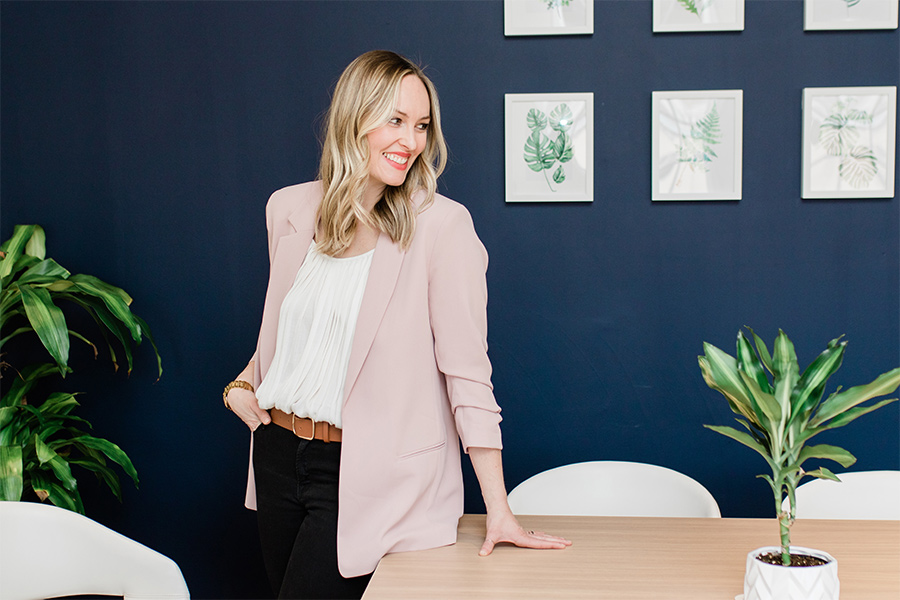Is Political Anxiety the New Normal?

Subscribe to Catalyst
Subscribe to get our magazine delivered right to your inbox
Related Articles
Related Articles
Amanda Friesen, a professor of political science and Canada Research Chair of political psychology at the University of Western Ontario, recalls talking to a colleague recently who said he had been feeling a lot of stress with “everything that’s happening” in politics. “It occurred to me, ‘you’re a political psychologist. Is political anxiety a thing?’ And I thought, ‘yes, it is.’ And so, he and I had this conversation.” Since then, Friesen has been called upon as a national commentator on the subject, offering advice on how to cope with “political stress” and avoid “political information overload.”
In the wake of rapid, even shocking, political, and economic changes in the past several months, many psychology experts and mental health counsellors across Canada have reported an increase in the number of clients confiding anxieties brought on by contemplating how political and societal changes will affect them.

Political psychologist Amanda Friesen shown here in Copenhagen during a research project: It’s about a balance between staying informed without the adverse effects.
The CBC recently reported a surge in “nervous googling” of terms such as “tariff” and “recession.” Many people say they are losing sleep worrying about what may come next – and feeling helpless in the face of all the turmoil. Some are turning off the news entirely to protect themselves from those difficult feelings. Others are addicted to “doom scrolling” and exposing themselves to hateful rhetoric on social media. Some are dealing with the emotional consequences of cutting off family members and friends over profoundly divergent opinions and beliefs. Depressive symptoms can be the fallout.
New world disorder
The trend is so pronounced, some mental health experts are wondering if “political anxiety disorder” should be made its own diagnosis, distinct from other forms of anxiety.
“There’s a lot of general anger and disbelief, I think,” says Stefanie Peachey, a registered social worker, accredited family mediator, and founder of Peachey Counselling and Family Support in Burlington and Oakville, Ontario. “[Clients are] saying to themselves, ‘What does this mean for me? I’m already so scared and anxious about finances, being able to afford my grocery bill or my rent. I don’t really understand tariffs, but I know that things might get more expensive for me. And how do I afford that?’”
Job loss, escalating prices on everything from groceries to building materials, and the lack of affordable housing – these issues are real and society-wide in their impact. Worrying is understandable, but if it leads to feelings of anger and helplessness that interfere with your life, finding ways to cope without shutting out reality is essential.

Social worker Stefanie Peachey: Worrying is understandable with all that’s going on. Therapists can help sort through complex issues and feelings.
“We need tools available for people because we don’t want them to disengage from democracy,” says Friesen. “I think it’s on journalists, social scientists, and political scientists to find ways to help people stay engaged and informed without adverse effects.”
Friesen suggests “setting up an intentional, formalized strategy” for consuming news. She employs one herself. “I do compartmentalize my news consumption. I never read the news before I go to sleep. I have a few subscriptions to news outlets where headlines of major and minor news stories get delivered daily or weekly. I read these stories and avoid jumping from link to link to link. I read and then stop and set it aside.”
Another way to deal with the uncertainties facing all of us is to be proactive in preparing for possible scenarios. “Let’s say that you work in an industry that one of the tariffs is going to impact. Reach out to your professional organization or your company and ask, ‘What’s going to be our response to this? Is there a way to prepare for it, remove some of that uncertainty?’” says Friesen. “We could imagine all sorts of scenarios that may or may not come to pass. Just get some concrete responses. Okay, this might happen or this or this, and here are some possible responses or plans we could make in response. It should make you feel better to know.”
Why tuning out completely isn’t the answer
Getting involved in your own community, or advocating for an issue you care deeply about, can go a long way to allaying feelings of helplessness. Focusing your time and energy on helping to further one cause is better than becoming paralyzed by feelings of emotional overload about every issue you read about, says Friesen. “Maybe there are some new environmental efforts in your community, or you have a friend who keeps bugging you to talk to the city about improving bike lanes. Do it. Find the things that you do have power over and focus on those,” Friesen advises.
Peachey echoes these suggestions. “As therapists, we’re often working with clients around uncomfortable thoughts and worries; all the ‘What ifs.’ For instance, for a client who is questioning their sexuality, and you worry, ‘What if I’m not accepted for this?’ We work around that fear and talk about all the supports that you may have in their life, and all the ways you can minimize some of the stress. It doesn’t mean that it’s not stressful or that the worry is wrong, but that the client’s thinking can be reframed. The same could be applied in this situation. How can we minimize the stress and focus on factors that may put us more at ease?”
In an article entitled, “How to cope with political and social uncertainty as a Canadian,” Peachey writes, “When we consciously shift our focus away from elements beyond our control and onto matters where our influence is meaningful, we not only conserve valuable mental energy but also gain a sense of empowerment.”
Peachey and Friesen agree that basic self-care – continuing to get enough sleep and exercise, eat well, moderate your news consumption, and practise mindfulness – just doing the things that bring you pleasure, connecting with friends and family who nurture and support you, are important now more than ever.
“It just doesn’t do any good to worry about politics every moment of the day. Live your life. Spend time with your people, enjoy the outdoors, immerse yourself in projects or activities that bring you joy. Burning out won’t help you be ready for future advocacy. This might be a marathon!” says Friesen.
Above all, says Peachey, remember that you are not alone. Many Canadians are feeling the same way and expressing their frustrations through concrete actions such as buying Canadian, or changing travel plans, for example.
If you need help, contact a therapist who can help you reframe your fears and anxieties and find positive ways to cope. As Peachey puts it, “Rather than dwelling on circumstances and behaviours that drain your emotional reserves, redirect your energy towards actions and initiatives that align with your cherished values. By doing so, you not only regain a sense of purpose and fulfillment but also nurture your mental well-being.”
Further reading: The Therapeutic Power of Blue Space.
Resource: Strategies to stay informed without feeling overwhelmed.
Author: Moira Farr is a national magazine journalist and instructor in Ottawa. She has been moderating her news consumption, altering her social media habits, and using the added time to volunteer more.